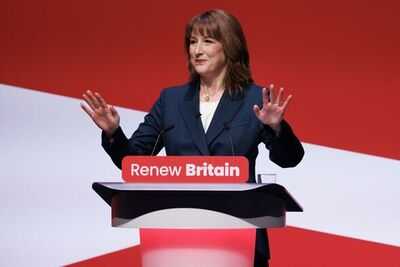Councils could be allowed to impose extra taxes under plans backed by Communities Secretary Steve Reed. He told MPs that he has asked Chancellor Rachel Reeves to grant councils powers to raise more money.
It comes after councils asked for the right to impose a "tourism tax", which could mean a charge levied on hotels for every room rented out each night. Other options backed by the County Councils Network include allowing local authorities to keep a proportion of income tax or stamp duty on the sale of new homes. The Communities Secretary told MPs he has made the case for fiscal flexibilities to enable authorities to generate much-needed revenue and is now waiting "with anticipation" for a decision by Ms Reeves.
But Mr Reed confirmed he has not discussed potential reforms to council tax, despite local authorities being highly dependent on the levy amid concerns the system is outdated and regressive.
During an appearance before the Commons Housing, Communities and Local Government Committee, Mr Reed was asked whether he would revisit the issue of fiscal devolution after it was not included in the English Devolution and Community Empowerment Bill currently going through Parliament.
He said: "I have always been an advocate of devolution, and that includes fiscal devolution.
"I have indeed told Treasury colleagues that, and we will wait with anticipation for the Budget to see what the Chancellor announces."
When later asked whether he has had meetings with ministers or civil servants on potential changes to council tax, Mr Reed replied with a simple "no".
The bands that determine how much a household pays in council tax are based on valuations conducted in 1991, meaning they do not reflect significant changes in house prices.
As property values have not been tracked to determine bills, poorer households now largely pay more in council tax as a proportion of their home's value and are required to spend a bigger slice of their income on the levy than affluent households.
Mr Reed assured the committee that the Government's fair funding review will seek to address the imbalance in income and resources across the country.
He said: "What is driving the review is that, if you look over the last 14 years, the correlation between funding and deprivation was drifting apart.
"So one of the key objectives of a fair funding review is to better align those things so that resource goes where the need is greatest so we can start to tackle deprivation and the factors that are holding communities back - so that people, wherever they live in the country, can have a better chance to aspire to and achieve better for themselves and their families."
You may also like

All-women high altitude trekking expedition flagged in Eastern Himalayas

"Relations between the RJD-Congress in 'Mahalathbandhan' well known": Bihar BJP President Dilip Jaiswal

Parents arrested after 4-year old twin boys 'shot themselves'

Arsenal in advanced talks for game-changing Napoli signing in major boost to Mikel Arteta

Congress appoints Ganesh Godiyal as Uttarakhand unit chief







